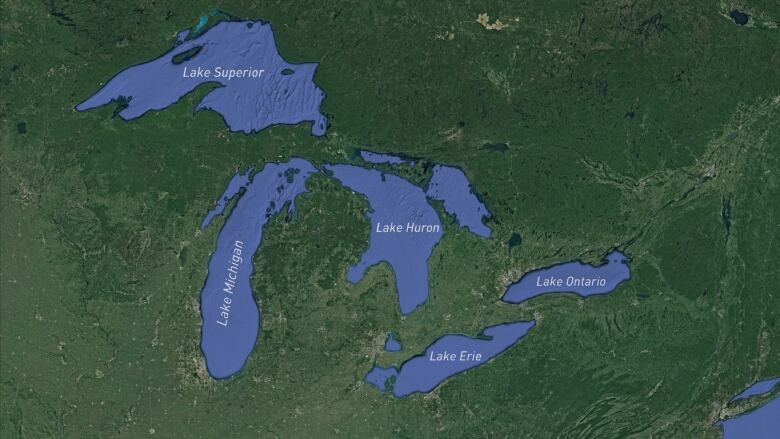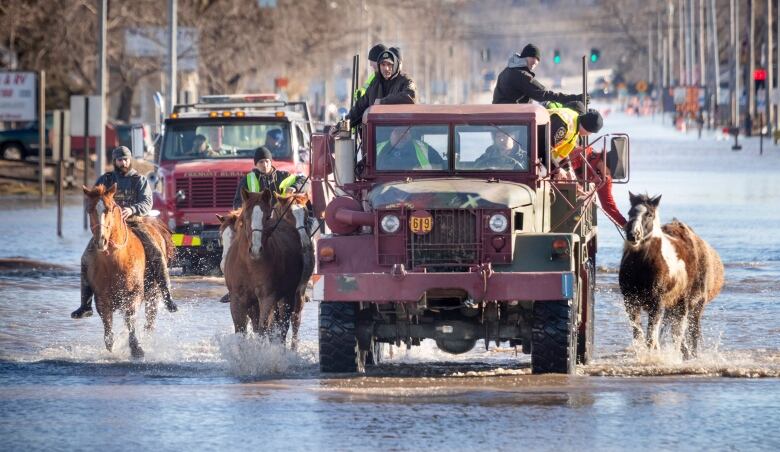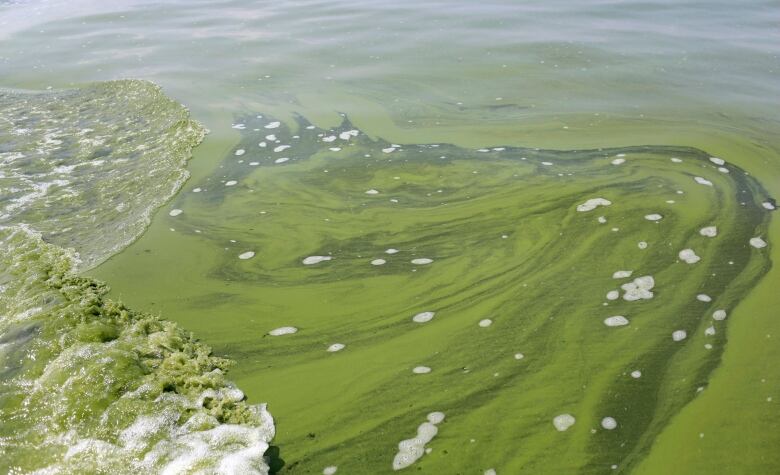Great Lakes are rapidly warming, likely to trigger more flooding and extreme weather
Report also predicts more severe algae blooms will increase water treatment costs

The Great Lakes region is warming faster than the rest of the U.S., a trend that is likely to bring more extreme storms while also degrading water quality, worsening erosion and posing tougher challenges for farming, scientists report.
In a report commissioned by the Chicago-based Environmental Law & Policy Center, the annual mean air temperature in the region increased 0.89 Cin the periods1901-60 and 1985-2016 compared to 0.67 Cfor the rest of U.S.
The region includes portions of the U.S. Midwest, Northeast and southern Canada.
Warming is expected to continue this century, with rates depending on how much heat-trapping gases like carbon dioxide and methane are pumped into the atmosphere.
As the air warms, it will hold more moisture, which will likely mean heavier winter snowstorms and spring rains. There could also be more flooding in vulnerable areas.
Not only that, summers will be hotter and drier.
"Over the last two centuries, the Great Lakes have been significantly impacted by human activity, and climate change is now adding more challenges and another layer of stress," said Don Weubbles, an atmospheric scientist at the University of Illinois and former assistant director of the Office of Science and Technology Policy in the Obama administration.
"This report paints a stark picture of changes in store for the lake as a result of our changing climate."
There were 18 scientists who produced the report, most from midwestern universities and the National Oceanic and Atmospheric Administration.
Warming climate
The Great Lakes hold about one-fifth of the world's surface fresh water. They are so large that they influence regional weather.
The lakes keep nearby regions cooler in the summer and warmer in the winter, when compared regions farther inland. The humidity of the lakes also fuels the "lake-effect" snowfall and summer rains.
Not only do the lakes provide drinking water for millions of people, they are the backbone of an economy built on manufacturing, agriculture and tourism.

A warming climate will add to the stresses the lakes have suffered from industrial pollution and development, according to the report, in particular the overflows from urban sewer systems that carry harmful bacteria.
While annual U.S. precipitation increased four per cent between 1901 and 2015, it jumped nearly 10 per cent in the Great Lakes region. Much of that increase was due to unusually large storms, the report says.
Future precipitation is likely to happen less evenly, decreasing five to 15 per cent in the summer by 2100.
Heat waves should become more common, posing risks for elderly people and children with asthma. By the end of the century, the region should have up to 40 additional days with temperatures exceeding 32.2 C (90 F).
While winter snowfall should decrease in most places, areas accustomed to lake-effectsqualls can expect them to dump even more snow particularly along the Lake Ontario snowbelt in New York.
The study did not include a cost-benefit analysis of a warming climate's likely results. Several of the scientists said in a phone news conference there may be some bright spots, but that the economic impact would mostly be negative.
Lower crop yield
The region could have longer growing seasons, said Brad Cardinale at the University of Michigan's Cooperative Institute for Great Lakes Research.
However, the report suggests that the benefit could be offset by wetter springs that make it harder to plant crops.
Not only that, increasing drought and heat in the summer could hit the agriculture industry hard.
The report predicts that corn and soybean crop yields will go down by 10 to 30 per cent by the end of this century.

Water quality
Drinking water quality will be degraded by more releases of untreated sewage during heavy storms and nutrient runoff that feed harmful algae blooms, some toxic.
Such blooms are common on Lake Erie and portions in Lake Huron and Lake Michigan, but they have started showing up in deep, frigid Lake Superior.
That's an unprecedented development, said Lucinda Johnson at University of Minnesota at Duluth.
Heavier storms will also boost the danger of erosion for beaches, dunes and shorelines, the report says.
It's uncertain how climate change will affect water levels in the Great Lakes, which already fluctuate periodically, the scientists said.
Warmer temperatures will produce less ice cover, boosting evaporation and pushing levels down.
However, they could rise in years with especially heavy precipitation and temporary deep freezes caused by southward migration of frigid polar air.
Although the Trump administration has reversed federal policies intended to prevent climate change, Howard Learner, president of the Environmental Law & Policy Center, said there are measures that states and local governments can take.
Some of those measures include increasing energy efficiency, stepping up use of renewable sources and preventing runoff of nutrient-rich manure from large livestock farms.
"We cannot wait for the Trump administration to accept sound science," Learner said. "We need to step up and act."












_(720p).jpg)


 OFFICIAL HD MUSIC VIDEO.jpg)
.jpg)



























































































